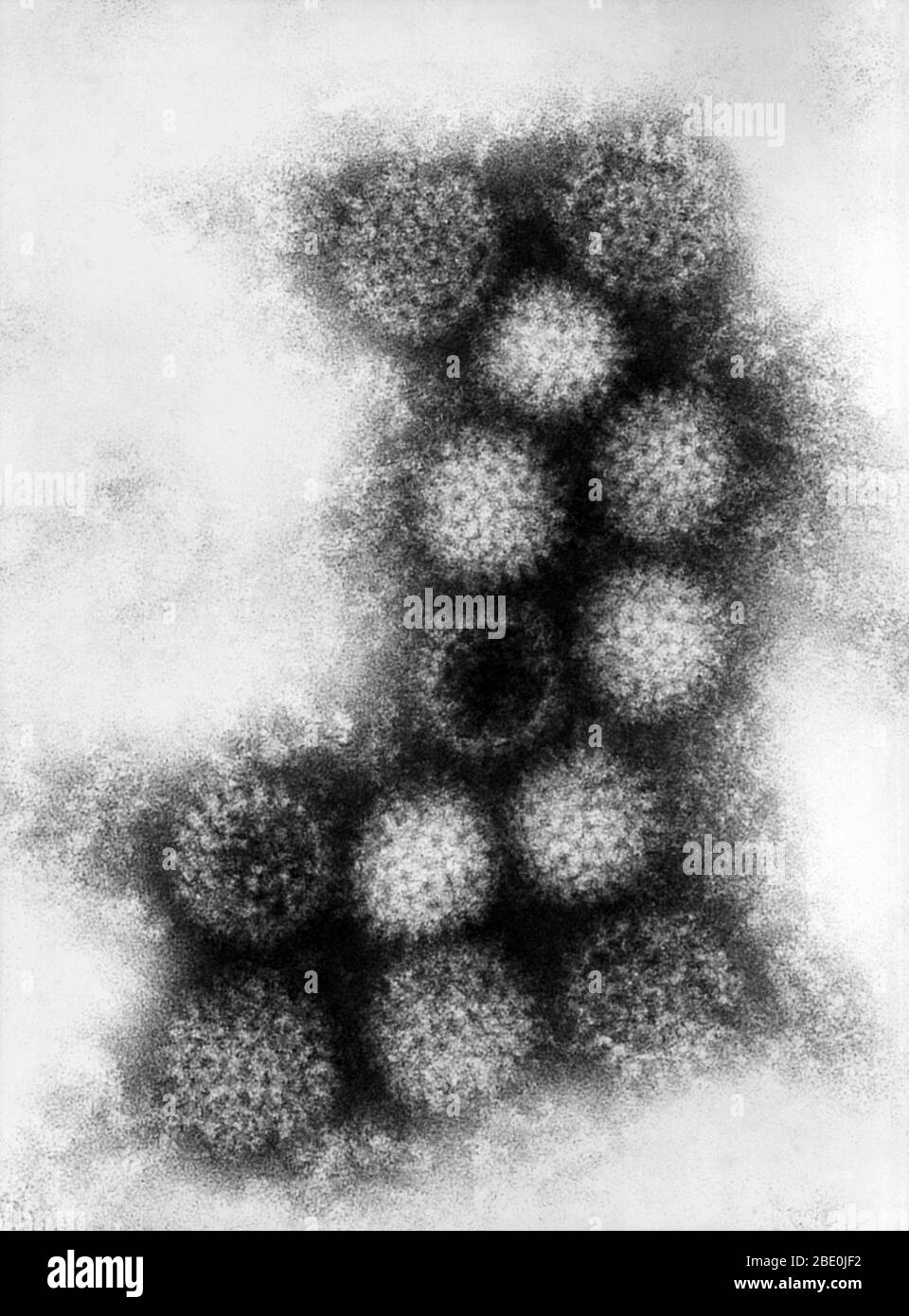Transmission Electron Micrograph (TEM) reveals some of the morphologic details displayed by the Irituia strain of the Changuinola virus, a member of the genus, Orbiviruses, which is one of nine genera of the virus family known as the Reoviridae. The Changuinola virus inhabits Panama and northern South America. The Irituia virion, consists of a capsid, which is not enveloped, and which is spherical in shape, 60-80nm in diameter. The core consists of ten segments of double-stranded RNA. The Irituia virus has been classified as a Biosafety Level-2 pathogen. As an arbovirus, Changuinola virus is s

Image details
Contributor:
Science History Images / Alamy Stock PhotoImage ID:
2BE0JF2File size:
40 MB (1.8 MB Compressed download)Releases:
Model - no | Property - noDo I need a release?Dimensions:
3214 x 4350 px | 27.2 x 36.8 cm | 10.7 x 14.5 inches | 300dpiDate taken:
3 March 2008Photographer:
Photo ResearchersMore information:
This image could have imperfections as it’s either historical or reportage.
Transmission Electron Micrograph (TEM) reveals some of the morphologic details displayed by the Irituia strain of the Changuinola virus, a member of the genus, Orbiviruses, which is one of nine genera of the virus family known as the Reoviridae. The Changuinola virus inhabits Panama and northern South America. The Irituia virion, consists of a capsid, which is not enveloped, and which is spherical in shape, 60-80nm in diameter. The core consists of ten segments of double-stranded RNA. The Irituia virus has been classified as a Biosafety Level-2 pathogen. As an arbovirus, Changuinola virus is spread through the bite of an insect vector determined to be phlebotomine sand flies. Magnification: unknown.